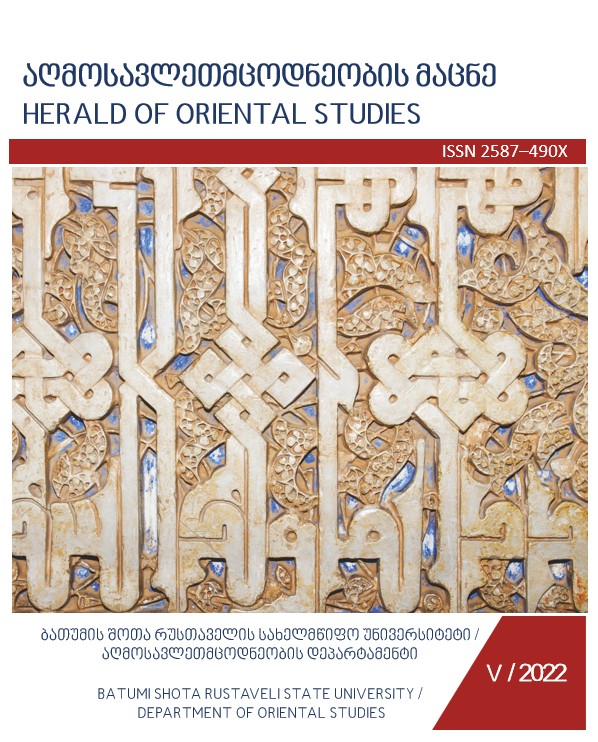ულუჩ ალი ფაშა - ტყვეობიდან ქაფუდან ფაშამდე (იტალიური და თურქული წყაროების მიხედვით)
Uluç Ali Pasha – From Slave to Kapudan Pasha (According to Italian and Turkish Sources)
Author(s): Levan JanjgavaSubject(s): Political history, 16th Century, The Ottoman Empire
Published by: ბათუმის შოთა რუსთაველის სახელმწიფო უნივერსიტეტი, ჰუმანიტარული მეცნიერებატა ფაკულტეტის აღმოსავლეთმცოდნეობის დეპარტამენტის „ელექტრონული ჟურნალი“.
Keywords: Uluç Ali; Battle of Lepanto; Ottoman Empire in the XVI Century; Ottoman Maritime;
Summary/Abstract: In the Ottoman Empire of the 16th century, the maritime naval forces were as prioritized as the ground forces. Among the thousands of kidnapped youths, who were converted to Islam joined the ranks of the Ottoman army. Some reached high military and naval positions. Among the latter, was the person of our research, Uluç Ali, who lived a very interesting yet difficult life. Yet, to this day he remains to be one of the most influential Kapudan Pasha in the history of the Ottoman navy.The life story of Uluç Ali as an outstanding Ottoman sailor has not been studied in detail in Georgian historiography. By working on this paper, we have taken into account the sources at hand that deal with Uluç Ali in both Eastern and Western historiography. From Western literature, we are guided by Italian sources from the 16th century, additionally researched by Italian historians and historiographers. We also highlighted Valentina Zecca, Vito Teti, Gino Benzoni, Gustavo Valente (author of the only biographical work written on Uluç Ali) and John Wolf. As for the oriental literature, we are acquainted with the works of Idris Bostan, Ismail Hakki Uzunçasil and Johann Wilhelm Zinkeisen.It should be noted that the Italian sources mostly rely on the sources of the 19th and 20th centuries, as well as those of Uluç Ali's contemporaries of the 16th century.The same can be said about Turkish sources. The greatest work was required by the process of comparison and synthesis of these sources, which in many cases made it difficult to determine the authenticity of one specific “occurred” event. The reason for all this was that the events described in the sources often did not match each other. Yet it has to be said that, due to the differing of source materials, we are not able to. Prioritize one over the other.
Journal: საერთაშორისო სამეცნიერო ჟურნალი „აღმოსავლეთმცოდნეობის მაცნე“
- Issue Year: 5/2022
- Issue No: 2
- Page Range: 125-138
- Page Count: 14
- Language: Georgian

